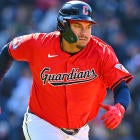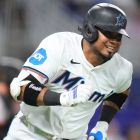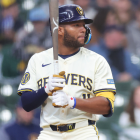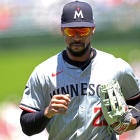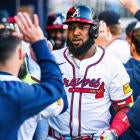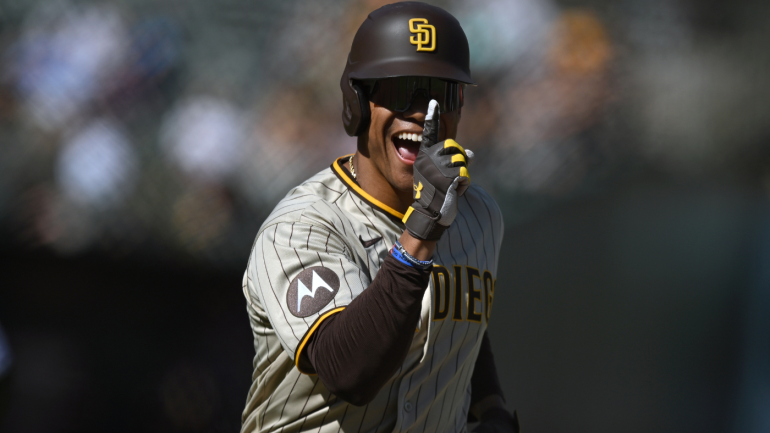
The San Diego Padres at this writing have ticked off six wins in a row, and they remain alive, albeit narrowly, in the National League wild-card race. Very likely, though, they're going to run out of time and schedule and miss the postseason. If that comes to pass then it will be tempting to see the Padres' 2023 season as grounds to condemn their recent efforts to build a World Series winner. However, that really shouldn't be the case.
Regardless of the on-field results – more on those in a moment – Padres GM A.J. Preller is to be praised for his aggressiveness, just as owner Peter Seidler is to be praised for his willingness to invest in the roster. Teams that do their damnedest to win are too rare in Major League Baseball these days, but the Padres are a pleasing exception. Moreover, Seidler's spending (the Padres boast – yes, boast – the highest payroll of any team not located in New York) laid utter waste to the fiction that small-market teams can't afford to spend. All the guaranteed revenues that flow into the pockets of small-market owners, which they get for merely existing, have created a coddled and lazy ownership class in baseball, but Seidler has risen above it. The Padres' disappointing 2023 doesn't take away from that.
Those disappointments, though, must be addressed, particularly when it comes time to look forward to 2024. That time is now. The Padres have nearly been eliminated from playoff contention and likely will finish this season with a losing record. Expectations were high for those reasons just noted, but they went unmet. Given that, does that mean the Padres should pivot toward the next phase or perhaps even tear it down in advance of 2024? Absolutey not.
On some level, it's a matter of principle – aforementioned principle that teams should try their best to compete until realities force them to undertake a rebuild. Mostly, though, this is about the impressive talent on the San Diego roster and the fact that their struggles in 2023 were largely driven by misfortune. Let's explore this latter point further.
The Padres have a current run differential of plus-81, which means across the season to date they've out-scored their opponents by 81 runs. You can use run differential to arrive at a "deserved" record, and in the Padres' case their run-based record is 84-68, which is quite a bit north of their actual record of 74-78. Historically, under-playing a run differential by such a margin is a rarity. That translates to an exceptionally unlucky team. For what it's worth a record of 84-68, which, again, is the level at which they've played on a fundamental basis, would put the Padres in top wild-card position in the National League. Were that the case, we wouldn't be doing all this hand-wringing over their season.
If run differential does a good job of stripping away luck and randomness from a team's record, then a thing called third-order standings, developed by Clay Davenport, nicely strips away additional layers of luck and randomness from run differential. Right now, the Padres have a third-order record of 84-68, which is the same as their run-based record. This, again, speaks to how unlucky Bob Melvin's squad has been this year.
Speaking of which, when the game is decided by five or more runs, the Padres are 31-20 this season. That's what you'd expect from a quality team. Undoing all that work is the fact that the Padres are 6-22 in games decided by one run and 0-11 in extra-inning contests. Those latter two marks are mostly driven by, again, luck (or a lack thereof in this instance) and randomness. Elsewhere, let it be noted that the Padres this season have compiled that very respectable run differential and third-order record despite having played one of the toughest schedules in all of baseball.
The real takeaway is that these things – run differential and third-order standings – better project future team performance than does the team's actual record in the prior season. That's largely why the Padres should absolutely run it back again in 2024. Their core lineup stars Juan Soto, Manny Machado, Fernando Tatis Jr., and Xander Bogaerts are all under contract for next season (and well beyond for all but Soto). They'll need to re-sign Blake Snell and Josh Hader or turn up adequate replacements for them and probably further fortify the rotation. That's all doable. Maybe the reported fissures between Melvin and Preller need to be addressed, but the roster shouldn't be upturned.
A return to relevance should be the aim because the Padres' baseline is higher than you might think. That's because the Padres are a better team that you might think based on the current standings. The 2023 season hasn't gone as hoped in San Diego, but it's not such that the organization should abandon their current plan.














